(1) Meditation/Yoga/Hypnosis, (2) Acupuncture, (3) Healthy Diet, (4) Adequate Sleep, and (5) Exercise Might Help

The Essential Info
Acne is a chronic inflammatory disease. The following alternative therapies and lifestyle practices all have the potential to lessen inflammation, so they could potentially help reduce acne symptoms:
- Meditation/Yoga/Hypnosis
- Acupuncture
- Healthy diet
- Adequate sleep
- Exercise
While none of these are likely to completely clear the skin, they just might help, and are good for you regardless.
My Take: Alternative therapies are unlikely to dramatically clear up your skin, so keep your expectations realistic. Make sure to use alternative therapies alongside proven treatments for best results. Also, don’t be taken in by anyone trying to push alternative remedies, particularly if they are charging for them. To get the most bang for your buck, try:
- Eating a low-glycemic diet (whole foods and low-sugar) when you can
- Getting your heart going 3 or more times a week
- Meditating for 8-15 minutes a day
All three of those things are basically free and might help reduce your body’s stress response and systemic inflammation.

The Science
Inflammation is the immune system’s way of repairing damage and fighting bacteria and viruses. Normally, inflammation is short-term and resolves itself once the threat is eliminated. However, ongoing inflammation is present with diseases such as acne. This is called chronic inflammation, which occurs when normal inflammation persists for months or years. Chronic inflammation can affect all parts of the body, such as in the case of arthritis, heart failure, diabetes, and dementia. In the case of acne, the skin is the organ suffering chronic inflammation.1,2
Unfortunately, medicating with anti-inflammatory medications is not a good option because of the severe side effects that accompany their usage.1,3 For this reason, these medications are reserved for severe auto-immune diseases.
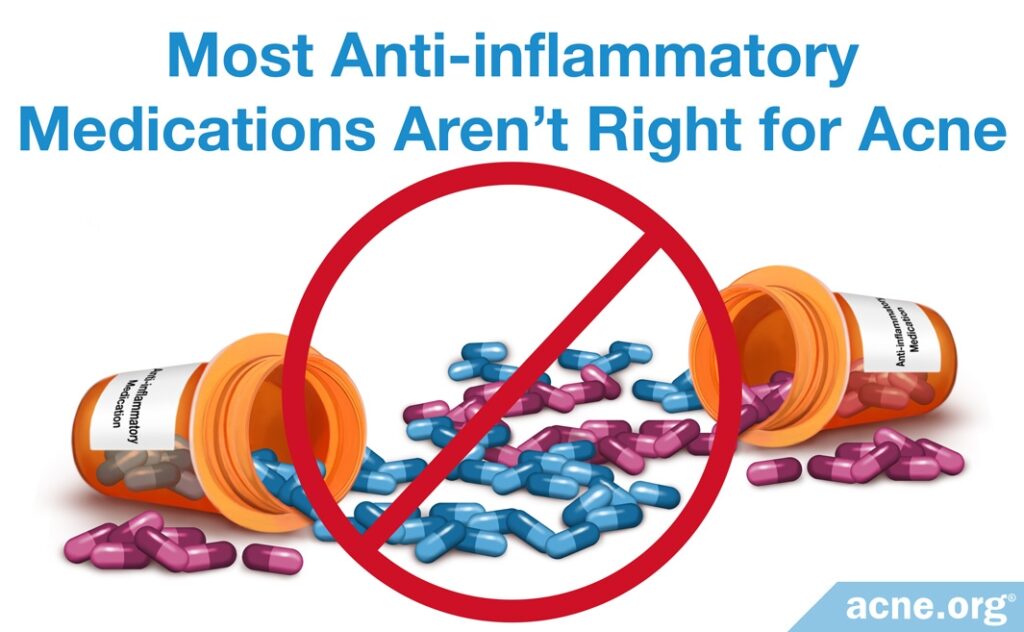
However, there are healthy ways to reduce chronic inflammation through lifestyle practices like:
- Meditation/Yoga/Hypnosis
- Acupuncture
- Healthy diet
- Adequate sleep
- Exercise
As you read about these potential holistic acne therapies below, keep in mind that some of the scientific studies we have on these therapies do not focus directly on acne, but rather on inflammation in general. Still, it makes scientific sense that reducing inflammation in the body could potentially reduce acne.
Meditation/Yoga/Hypnosis
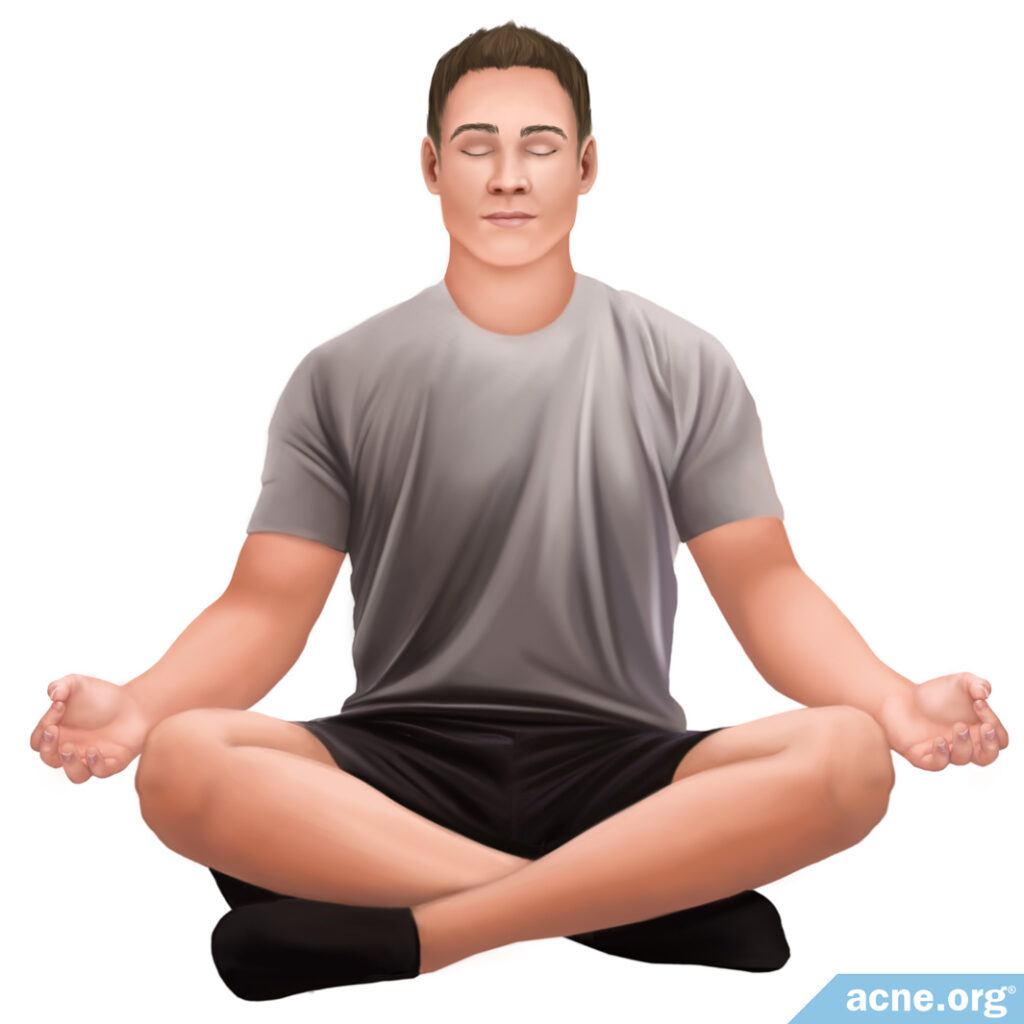
Stress can cause inflammation and is thought to most likely increase the symptoms of acne. Meditation and yoga are two activities that researchers have found reduce stress.
Scientists have performed three studies investigating the effects of meditation and yoga on inflammation and have found that both practices are effective in reducing or preventing inflammation.4-6
Expand to read details of studies
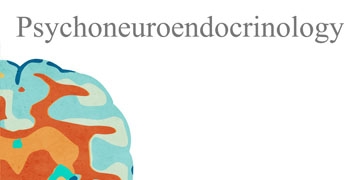
A 2016 study published in Psychoneuroendocrinology compared the stress and inflammatory response of 31 experienced meditators to those of a control group. To perform this experiment, the researchers used the Trier Social Stress Test (TSST) to induce and measure stress and applied a cream to the participants’ forearms in order to cause an inflammatory reaction. The researchers found that the experienced meditators displayed a lower stress response and inflammatory response when compared to those of the participants in the control group. The scientists concluded that the long-term practice of meditation may reduce stress and benefit chronic inflammatory conditions, like acne.4
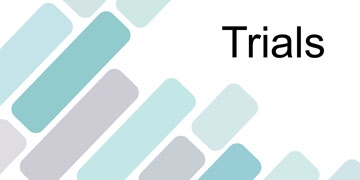
A 2011 study published in Trials investigated yoga’s ability to relieve pain and reduce inflammatory responses in 20 osteoarthritis patients and 17 carpal tunnel syndrome patients. Osteoarthritis and carpal tunnel syndrome are chronic inflammatory diseases. The researchers who performed this study found that yoga was able to reduce the pain and improve the mobility in each group of patients. They concluded that yoga caused “a reduction in inflammatory responses in body healthy individuals and those with a disease.”5
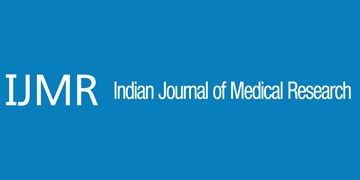
A 2014 review published in Indian Journal of Medical Research summarized various studies related to how yoga impacted inflammation in obese individuals. This review concluded that yoga could reduce weight, obesity-related inflammation, and stress, which reduces the risk of cardiovascular diseases. Specifically, scientists found that an intensive yoga program can regress the effects of an inflammatory disease called coronary heart disease after just one year of yoga practice and that continued yoga practice causes further regression of the disease. The authors of the review mentioned that the effect of yoga on inflammation is partially due to a reduction in certain inflammatory molecules called IL-6 and TNF-α. Therefore, yoga is an excellent exercise to implement for weight loss, stress reduction, and potentially the treatment of chronic inflammatory diseases. The importance of this study is that it identified how yoga can directly decrease the effects of a chronic inflammatory disease. Although not studied in relationship to acne, it is possible that yoga decreases the inflammation associated with it as well.6
Hypnosis is another alternative method for reducing chronic stress. By inducing relaxation, hypnosis might help improve acne, at least in theory. Exactly how this might work is still unclear, but one possibility is that hypnosis may change how stress hormones are released in the body.
Very preliminary studies suggest that some patients might experience an improvement in acne symptoms after hypnosis. One recent review article in a medical journal looked at the evidence available to date and concluded that hypnosis is an alternative therapy worth looking into.7
Expand to read details of the review article
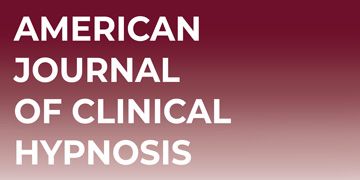
An article published in the American Journal of Clinical Hypnosis in 2018 reviewed evidence that hypnosis might help in the treatment of various skin conditions, including acne. The authors examined case reports in which patients experienced a subjective improvement in acne lesions after undergoing hypnosis. In some cases, objective assessment also found that lesions became less intense after hypnosis. However, larger and more rigorous studies are necessary to confirm these findings.7
The article also described one example of a patient with acne excoriée, a type of acne in which patients compulsively squeeze and scratch acne lesions. Hypnosis helped this patient by training her to remember the word “scar” whenever she felt the urge to pick at her lesions and to say the word “scar” instead.7
Acupuncture
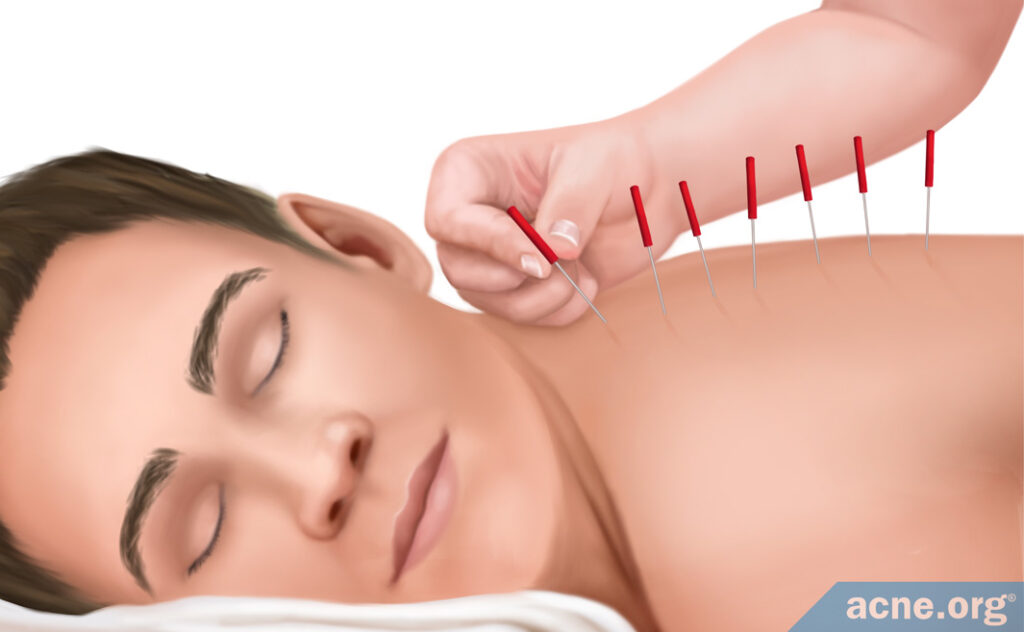
Acupuncture is an ancient Chinese practice that involves the placement of needles into specific points in the body. Specifically, acupuncture stimulates a very large and important nerve called the vagus nerve. This stimulation is thought to send signals to the brain, which tell it to block the immune cell activation and the release of inflammatory molecules. When this signal is sent, inflammation is blocked.
One recent review article examined all the studies available to date that have tested acupuncture on acne patients. These studies found that acupuncture might be as effective as standard acne medication, but with fewer side effects. However, the authors of the article noted that the quality of most of the studies was low. Rigorous clinical trials are necessary before we can confidently know whether acupuncture might reduce acne symptoms.9
Expand to read details of review article
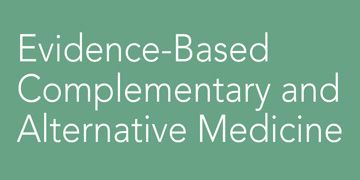
This review article was published in the journal Evidence-based Complementary and Alternative Medicine in 2018. The authors searched 11 English and Chinese databases to identify randomized controlled trials of acupuncture in acne patients. They found 10 clinical trials that compared the efficacy of acupuncture to acne medication. Based on the results of these 10 trials, acupuncture was as effective as standard acne medication at improving acne symptoms, but with fewer side effects. However, the researchers wrote, “[The] methodological quality of trials was generally low.” They concluded that more research is necessary to confirm the benefits of acupuncture for acne patients.9
Healthy diet
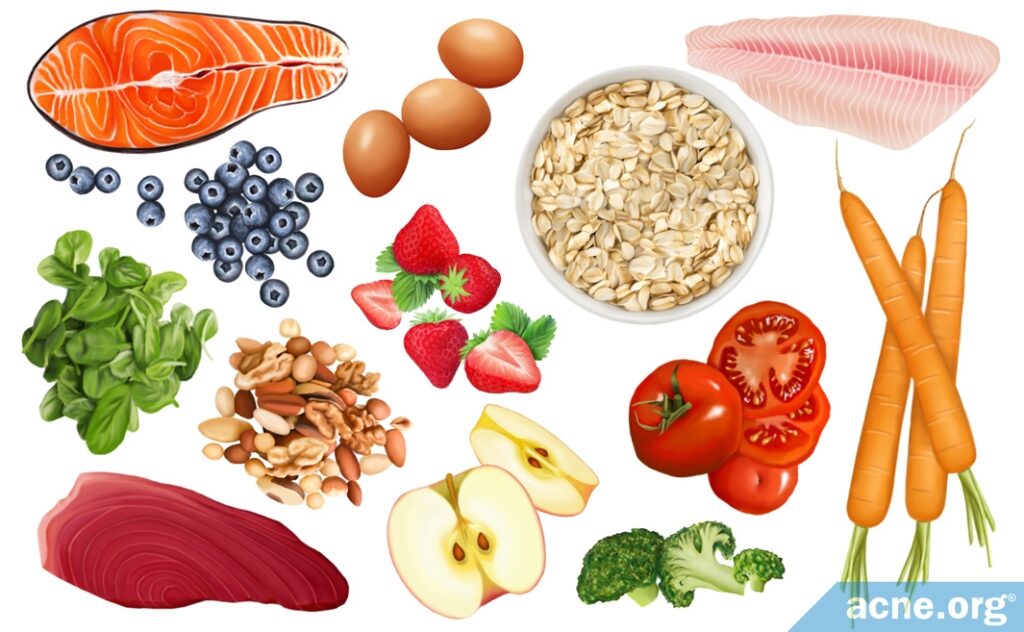
While diet is notoriously hard to study, the typical Western diet is widely thought to be responsible for the presence of chronic inflammation and the development and/or aggravation of chronic inflammatory diseases.
Also, obesity, which is diet-related, is a major cause of chronic inflammatory diseases, and may play a role in the development of acne.
A person who consumes a typical Western diet receives 70% of their energy from sugar, oils, dairy, and processed cereals and grains. This diet leads to an over-consumption of sugar and bad fats called saturated fatty acids and trans fatty acids, and an under-consumption of important vitamins and minerals, including vitamin D, vitamin K, and magnesium. Further, this diet results in consuming too much omega-6 fatty acid and too little omega-3 fatty acid. If the ratio of omega-6 to omega-3 fatty acid is unbalanced, it can cause more inflammation in the body.
Therefore, diet is crucial for regulating inflammation, and a healthy diet based on whole, unprocessed foods, colorful fruits and vegetables, and omega-3 fats may reduce the inflammation associated with diseases such as acne.10,11
Adequate sleep

Getting enough sleep is important for overall health, and some research suggests that it may help keep acne in check as well. One study found that the majority of acne sufferers noticed a pattern, with poor sleep seeming to trigger a breakout.12 Another study showed that people who slept poorly at night produced more skin oil, which could lead to more acne.13 Although these results are preliminary, and proper sleep alone won’t clear acne, it’s a good idea to aim for 7-9 hours of sleep a night if you are an adult, or 8-10 hours per night if you are a teen.
Expand to read details of studies

A study published in the International Journal of Dermatology in 2011 asked 1236 people with acne who visited a dermatologist to complete a questionnaire about factors that triggered or worsened their acne. The vast majority of participants, or 76%, believed that poor sleep triggered a breakout for them. Therefore, the researchers concluded that getting an adequate amount of sleep per night may be important for keeping acne under control.12

Another study showing a connection between sleep and acne was published in the Indian Journal of Dermatology, Venereology & Leprology in 2016. In this study, the researchers compared skin oil levels in 85 women with acne, approximately half of whom were good sleepers and about half were poor sleepers. The scientists found that poor sleepers had significantly higher skin oil levels in the so-called T-zone (the forehead and nose) as well the rest of the face. In acne-prone people, more skin oil tends to mean more acne. In other words, this study shows that people who do not get enough sleep may produce more skin oil, which may end up resulting in more acne.13
Exercise
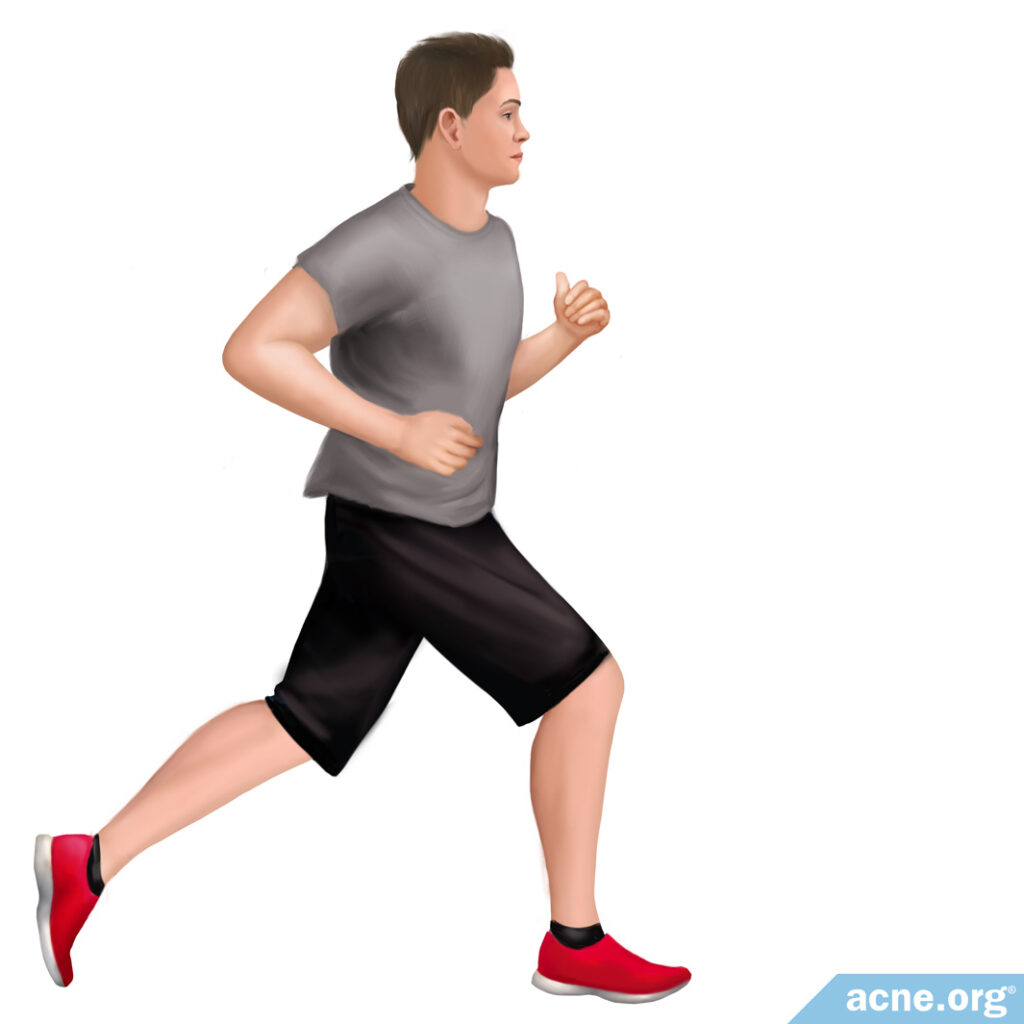
Exercise is excellent for maintaining general health and is the best option we have for reducing stress. Since we know ongoing stress can cause inflammation, regular exercise also may prevent and reduce chronic inflammation.
Aside from stress reduction, another process by which exercise reduces inflammation is weight loss. Obesity is a major risk factor for chronic inflammatory diseases. Therefore, maintaining a healthy weight can reduce the risk of developing chronic inflammation.
Interestingly, a single bout of high-intensity exercise in people who normally do not exercise can have the opposite effect and can cause or worsen inflammation in the body. In other words, if someone does not normally exercise, and suddenly begins exercising intensely, this can have a short-term inflammatory effect. However, repeated, regular exercise decreases inflammation. So if you want to reduce inflammation, start an exercise routine slowly, keep it up, and build intensity over time.
What type of exercise is best? Research has also shown that performing both higher-intensity aerobic exercise and resistance exercise (weight training) provides the highest reduction in inflammation in obese and healthy people.
Regardless of what type of exercise you engage in, it is clear that exercise is an effective alternative activity for reducing chronic inflammation and may prove beneficial in the treatment of acne in both overweight and healthy people.1,14,15
References
- Beavers, K. M., Brinkley, T. E. & Nicklas, B. J. Effect of exercise training on chronic inflammation. Clin. Chim. Acta 411, 785 – 793 (2010). https://www.ncbi.nlm.nih.gov/pubmed/20188719
- Pruimboom, L., Raison, C. L. & Muskiet, F. A. J. Physical activity protects the human brain against metabolic stress induced by a postprandial and chronic inflammation. Behav. Neurol. 2015, 1 – 11 (2015). https://www.ncbi.nlm.nih.gov/pubmed/26074674
- Tabas, I. & Glass, C. K. Anti-inflammatory therapy in chronic disease: challenges and opportunities. Science 339, 166 – 172 (2013). https://www.ncbi.nlm.nih.gov/pubmed/23307734
- Rosenkranz, M. A. et al. Reduced stress and inflammatory responsiveness in experienced meditators compared to a matched healthy control group. Psychoneuroendocrinol. 68, 117 – 125 (2016). https://www.ncbi.nlm.nih.gov/pubmed/26970711
- Evans, S. et al. A randomized controlled trial examining Iyengar yoga for young adults with rheumatoid arthritis: a study protocol. Trials 12, 1 – 16 (2011). https://www.ncbi.nlm.nih.gov/pmc/articles/PMC3033352/
- Sarvottam, K. & Yadav, R. K. Obesity-related inflammation & cardiovascular disease: efficacy of a yoga-based lifestyle intervention. Indian J. Med. Res. 139, 822 – 834 (2014). https://www.ncbi.nlm.nih.gov/pubmed/25109716
- Shenefelt P. D. Mindfulness-based cognitive hypnotherapy and skin disorders. Am. J. Clin. Hypn. 61, 34-44 (2018). https://www.ncbi.nlm.nih.gov/pubmed/29771216
- Kavoussi, B. & Ross, B. E. The neuroimmune basis of anti-inflammatory acupuncture. Integr. Cancer Ther. 6, 251 – 257 (2007). https://www.ncbi.nlm.nih.gov/pubmed/17761638
- Mansu SSY, Liang H, Parker S, Coyle ME, Wang K, Zhang AL, Guo X, Lu C, Xue CCL. Acupuncture for acne vulgaris: A systematic review and meta-analysis. Evid Based Complement Alternat Med. 2018 Mar 12;2018:4806734. doi: 10.1155/2018/4806734. eCollection 2018. https://www.ncbi.nlm.nih.gov/pubmed/29721027
- Ilich, J. Z., Kelly, O. J., Kim, Y. & Spicer, M. T. Low-grade chronic inflammation perpetuated by modern diet as a promoter of obesity and osteoporosis. Arch. Ind. Hyg. Toxicol. 65, 139 – 148 (2014). https://www.ncbi.nlm.nih.gov/pubmed/24945416
- Ruiz-Núñez, B., Pruimboom, L., Dijck-Brouwer, D. A. J. & Muskiet, F. A. J. Lifestyle and nutritional imbalances associated with Western diseases: Causes and consequences of chronic systemic low-grade inflammation in an evolutionary context. J. Nutr. Biochem. 24, 1183 – 1201 (2013). https://www.ncbi.nlm.nih.gov/pubmed/23657158
- Suh, D. H. et al. A multicenter epidemiological study of acne vulgaris in Korea. Int. J. Dermatol. 50, 673-81 (2011). https://www.ncbi.nlm.nih.gov/pubmed/21595660
- Bilgiç, Ö., Bilgiç, A., Altinyazar, H. C., Williams, H. C., Dellavalle, R. P. & Garner, S. Acne vulgaris. Relationship between sleep quality and facial sebum levels in women with acne vulgaris. Indian J. Dermatol. Venereol. Leprol.82, 313-314 (2016). https://www.ncbi.nlm.nih.gov/pubmed/27088937
- Nimmo, M. A., Leggate, M., Viana, J. L. & King, J. A. The effect of physical activity on body fat. Diabetes, Obes. Andm. 15, 51 – 60 (2013). https://onlinelibrary.wiley.com/doi/full/10.1111/dom.12156
- Wärnberg, J., Cunningham, K., Romeo, J. & Marcos, A. Physical activity, exercise and low-grade systemic inflammation. Proc. Nutr. Soc. 69, 400 – 406 (2010). https://www.ncbi.nlm.nih.gov/pubmed/20598198
 Acne.org Products
Acne.org Products